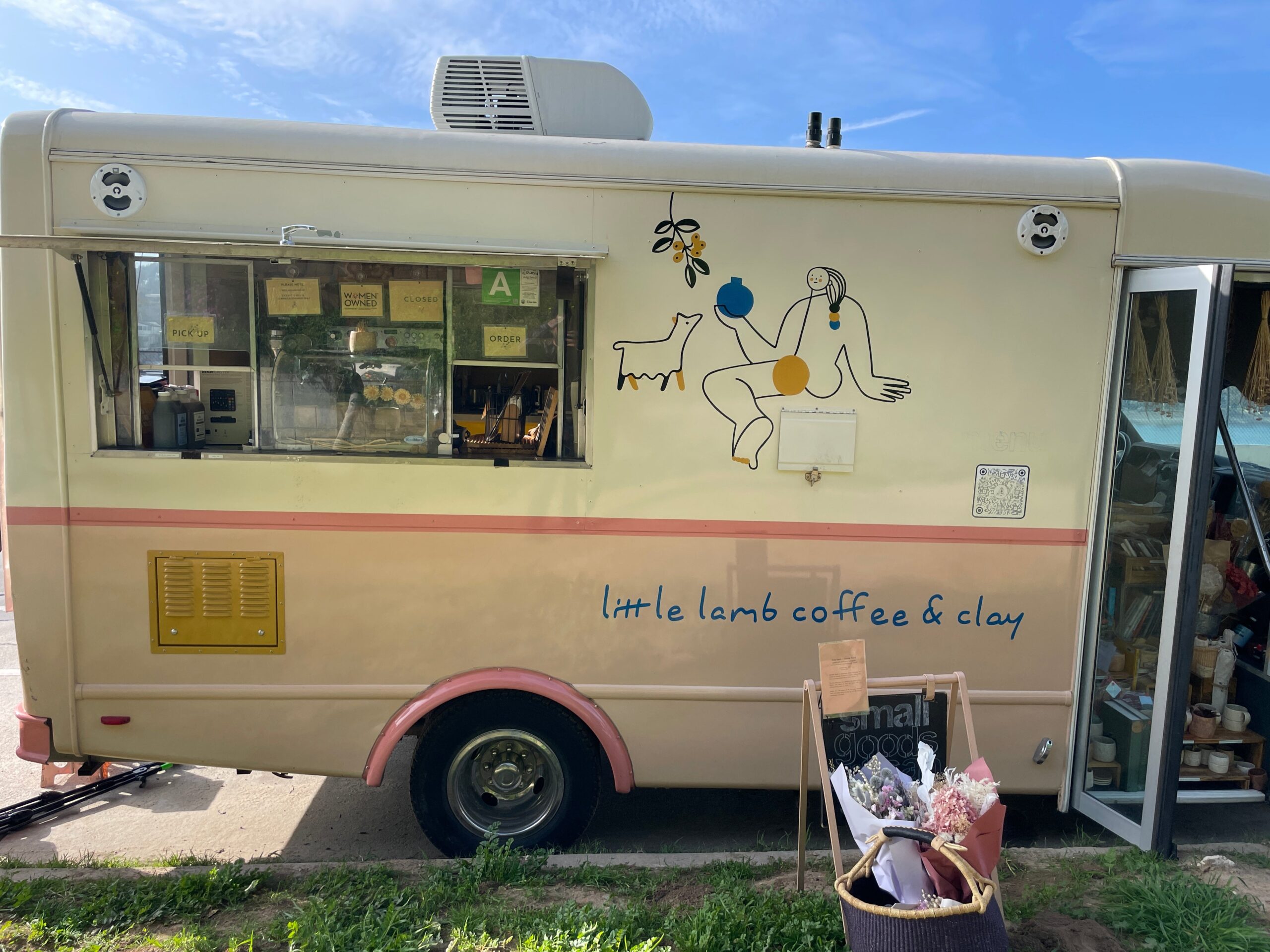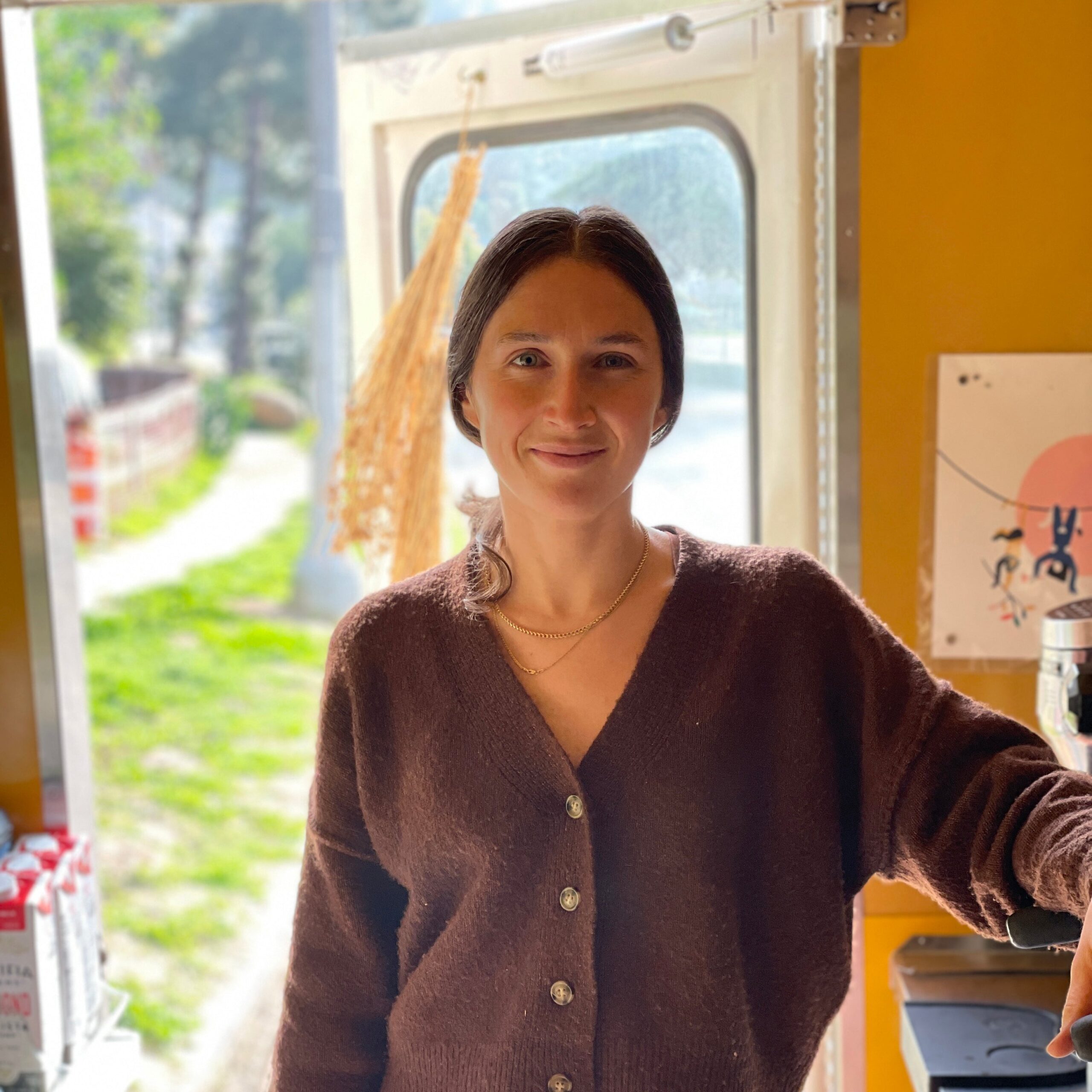Ryan Lagasse took her two loves—coffee and ceramics—and turned them into her own business: a mobile coffee shop based out of a converted airport shuttle. Alongside coffee, Little Lamb sells ceramics and other goods at farmers markets, college campuses, and production sets in Los Angeles.
Being mobile is a key differentiator for Ryan’s business. From her previous role as a production coordinator, she knew there was demand for artisanal coffee on sets. To address this need, she bought a vehicle to drive around to TV, film, and photography productions around the city.
Ryan believes her unique mobile aspect helped her secure a loan from the US Small Business Administration. It also gives her the flexibility she wants in a career. “I’m not sure that LA is where I’m rooted for the rest of my life, so I didn’t want that to prohibit me from starting my own business,” Ryan says.
Ahead, Ryan shares her advice for taking your business on the road.
4 tips for running a mobile business

In the first year of Little Lamb, Ryan learned that a business on wheels comes with a few unique challenges—and opportunities that brick-and-mortar store owners might not have.
1. Consistency is key for getting customers
It’s not as simple as parking somewhere and expecting customers to show up. Ryan says going to certain locations regularly helps people find out about the brand and makes them curious enough to try a new business. “It’s going to take about three solid weeks of going [to a spot] to get any sense of the business in the neighborhood,” she says.
2. Wake up earlier than the competition
“LA is bogged down with food trucks, so it’s competitive to find a spot,” Ryan says. Some food trucks might have partnerships that let them park outside certain stores, but everyone else is fighting for the same areas with good foot traffic.
That means Ryan wakes up at 4:30 a.m. to get a parking spot that’s big enough for her mobile shop. In some cases, it also means eating the cost of parking tickets if she expects there will be enough customers to make up for it.
3. Go cashless
One of the considerations of a mobile business is safety. Ryan pays $1,500 a month at a commissary to be able to park her shop overnight, which provides some security.
She also runs a cashless operation, even at farmers markets, where cash is still the norm. “I want to make it clear to people that there’s no cash on the bus,” she says, pointing out a sign in the window.
4. Make your vehicle your own
Knowing that she would be spending a lot of time alone in the converted airport shuttle, Ryan wanted to create a space that was creative, warm, and inviting.

It’s a stark contrast to generic food trucks that typically are colored stainless steel gray on the inside. “The shop was meant to be marketed toward a different market of people that have a bit more appreciation for a creative aesthetic,” Ryan says.
Ryan has been able to tap into that market further by selling the ceramics she creates herself, along with other goods. Ryan says she eventually wants to grow the business to the point where customers can sip their drinks from her very own creations.
To learn more about running a mobile business, listen to Ryan’s full interview on Shopify Masters.
